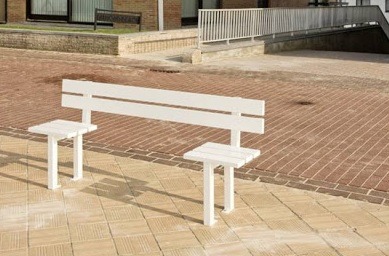One of the laziest cliches about Belgium is the country is so divided and the people so different from each other that the break-up of the state is inevitable.
“We think about everything differently,” the leader of the far-right Vlaams Belang party Tom Van Grieken told The Brussels Times, before describing Belgium as a “failed state” that should be chopped up.
With elections to Belgium’s regional and federal parliaments coming up and separatist parties on course to top the polls in Flanders, it is high time to debunk the myth that the only things uniting Belgians are “the king, the football team, some beers,” in the words of former prime minister Yves Leterme.
Indeed, after over 30 years in Belgium and with busloads of friends and colleagues in Brussels, Flanders and Wallonia, my experience is that Belgians have a lot more in common than they realise and some politicians claim.
Most Belgians I know love their families, their pets and their cars - though not necessarily in that order. They are obsessed with buying, building and doing up houses. They are happy to flout rules they don’t like - whether speed limits or paying taxes. They work to live, not live to work. They are not particularly patriotic but proud of their roots and passionate about local customs. They grudgingly accept high levels of taxation in return for high levels of welfare. They joke about everyone and everything, but most of all about themselves. They are laid-back and easy-going, except when in cars or queues. They are mad about cycling and football - and punch above their weight in both sports. They are gourmands who enjoy the rituals of eating and drinking, often to excess. Whether you call them croquettes de crevettes or garnaalkroketten, deep-fried grey shrimps are consumed in industrial quantities by both French and Dutch speakers. And whether your favourite beer is a Westmalle, a Saint Hubertus or a Zinnebier you’re unlikely to spend too much time worrying whether it was brewed in Flanders, Wallonia or Brussels.
Of course there are differences between the regions. But to claim Belgians are irreconcilably incompatible peoples “forced into a marriage of convenience,” in Van Grieken’s words, is hard to argue with a straight face. It also ignores the fact that many countries group together disparate peoples into fractious but peaceful unions - whether northern and southern Italians, Scottish and English or Texans and New Yorkers.
There is no doubt Belgium is divided. So many powers have been devolved to the three regions - Flanders, Wallonia and Brussels - that the state has been almost hollowed out. Regional differences therefore become a self-fulfilling prophecy. After all, if there are no national political parties any more you can hardly accuse voters of backing regional ones. And if there is no national media, you can’t complain that people in the north don’t know what’s happening in Wallonia and people in the south don’t know what’s happening in Flanders.
Belgium may be divided, but so is Britain, Spain and many other countries. And lots of other states have devolved significant powers to their regions - notably Germany, Australia and the United States. In Belgium’s case, linguistic differences make it harder for Flemish and Walloons to communicate. But many countries in the world have more than one national language. Switzerland has four but is in no danger of splitting up. And if India can exist with over 700 languages, surely Belgium can with three.
Political divisions are also very real in Belgium. Right and far-right parties are expected to take half the vote in Flanders and left and far-left parties half the vote in Wallonia on June 9. But again, political rifts between regions are not unusual. Massachusetts has voted Democrat for decades and Wyoming Republican. But you don’t hear much talk of either state seceding. Also, political allegiances change. Northern France used to be a communist bastion, now the far-right National Front is the most popular party in many areas.
Separatists like Van Grieken argue that breaking up the country can be done smoothly - like the ‘velvet divorce’ between Czechs and Slovaks in 1992. I lived in Czechoslovakia then and can assure the far-right leader there was no public push for splitting the country in two and it was never put to a popular vote. Instead it was the unfortunate result of political pigheadedness by the leaders of the most powerful Czech and Slovak parties at the time. Many Czechs and Slovaks I know are still bitter about the break-up between two peoples who share so much in common.
In the end, what unites us outweighs what divides us. And what distinctions do exist are, in the grand scheme of things, almost always the “narcissism of small differences,” as Freud noted. I write this as a proud Welshman who was brought up to view the English as enemies - at least on the rugby pitch. And I write it as a proud Belgian who would hate to see his shiny new passport ripped up by those who ferment discord and division.

